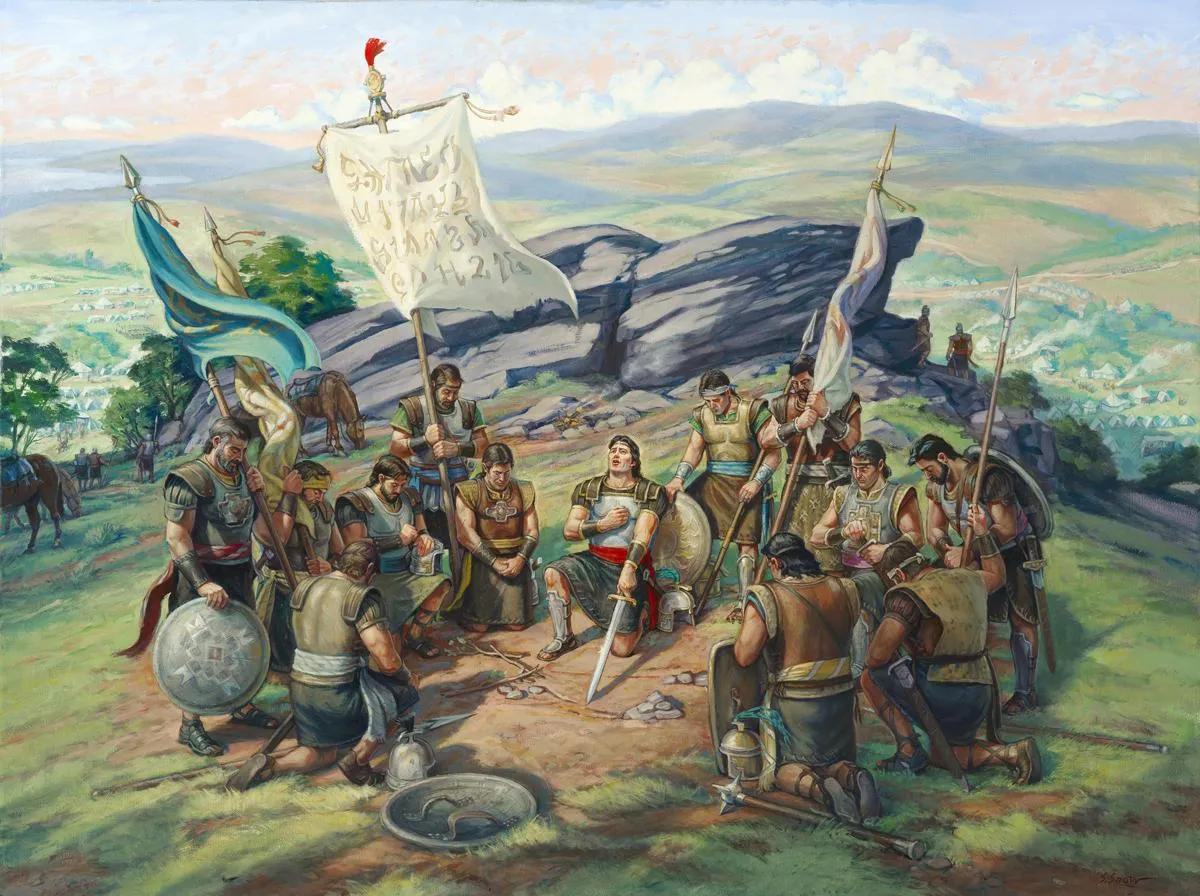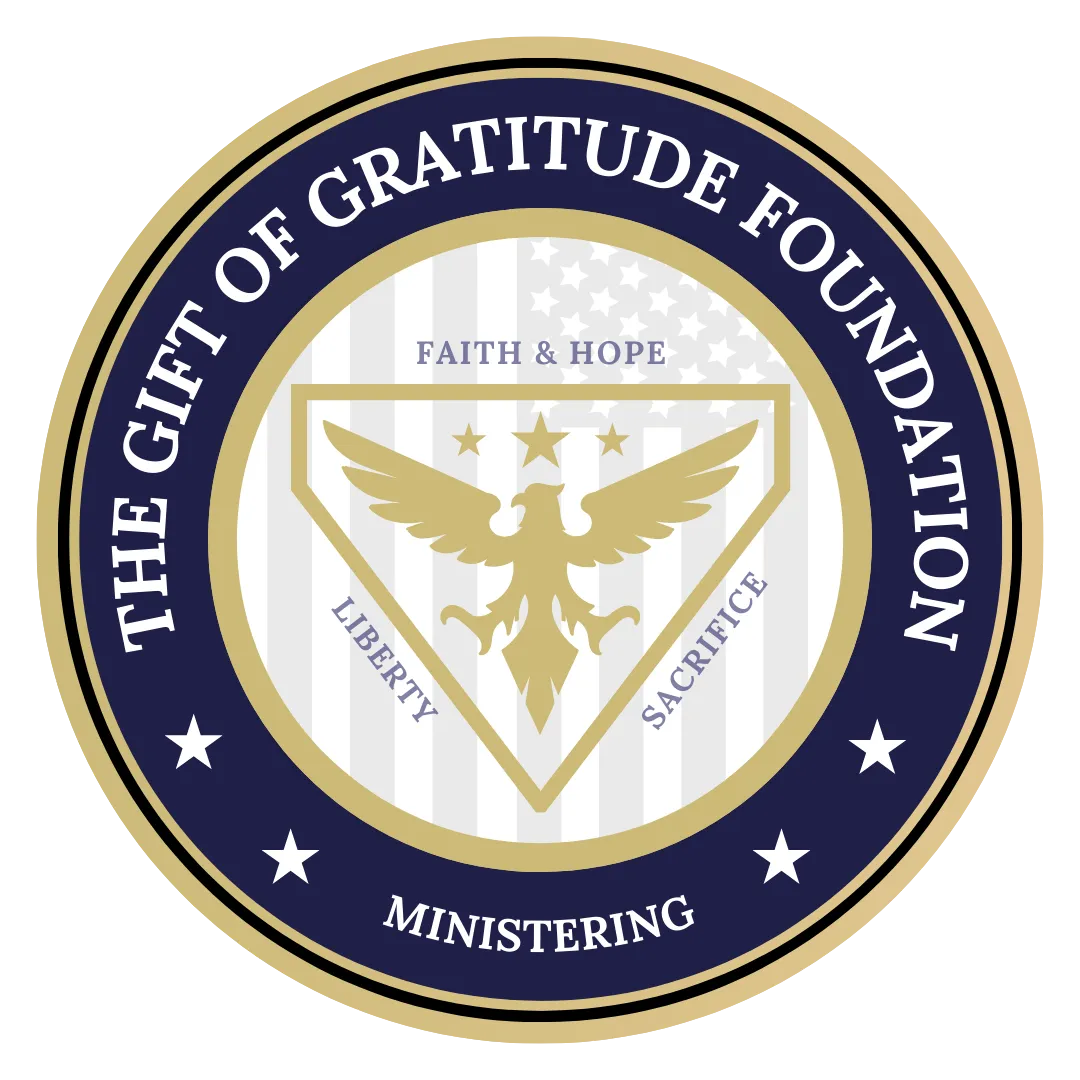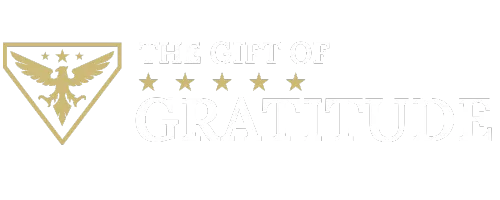Moroni's
Council of Captains
By Scott Snow
Moroni's Council of Captains
As Latter-Day Saints, we eagerly await the Millennial reign of peace when “they shall beat their swords into plowshares, and their spears into pruninghooks: nation shall not lift up sword against nation, neither shall they learn war anymore (Isaiah 2:4).” In these last days, however, we know “wars and rumors of wars, and the whole earth [is in commotion] (D&C 45:26).”
Moroni fought “with the strength of God (Alma 56:56).” Moroni “did not delight in bloodshed (Alma 48:11),” he was “firm in the faith of Christ,” and committed to “defend his people, his rights, and his country, and his religion (Alma 48:13).” Moroni’s strength was in his faith and in his councils. When faced with a challenging problem, Moroni and Teancum paused and “held a council of war – what they should do to cause the Lamanites to come out against them to battle (Alma 52: 19).”
The following is my personal experience with Councils of War:
In the summer of 2012, I commanded a Marine Corps infantry battalion in southern Afghanistan. During our deployment we conducted a large operation to secure population centers in our Area of Operations.
Months of meticulous planning preceded our assault into the heart of the Taliban strongholds. An impressive array of military organizations supported our assault, each providing a critical capability to allow the battalion to execute the early, vulnerable stages of the operation.
Only hours prior to committing the Battalion Combat Team to the assault, I learned some of the assets required to support our Marines during the attack would not be available as planned. The decision to carry on with the operations or delay was mine and mine alone. The captains in command of their companies were eager to take the fight to the enemy but equally reliant on the support they would need to be successful. Now was not the time for impatience or premature decision.
Within a few moments of getting the news, I directed commanders to gather to council about what action we might take. Before entering the impromptu meeting, I felt impressed to close the door to my command post and kneel in prayer. Before counselling with those Captains, I desired to counsel with my Father in Heaven. I prayed for His guiding hand to direct my thoughts and bring clarity to my mind. A few moments later, I entered my own “Council of Captains,” as Moroni had in his time of crisis. I was at peace. When the “council” ended, we were unified in intent, purpose, and objective.
Hours later, as we made our way in total darkness to the landing zones flying over enemy positions, I observed streams of tracers coming from the villages below. The enemy could not see us. They could only hear the powerful rotors long after we had passed. By sunrise we were safely on the ground, firmly entrenched in well-defended positions prepared to carry out our operation.
After nearly a month of daily fighting, our operation ended, and I was able to go to a large base with a makeshift chapel and Church of Jesus Christ of Latter-Day Saint services. Of that meeting, I recall feelings of gratitude and peace as we sang the words of the opening hymn:
Be still my soul. The Lord is on thy side. With patience bear thy cross of grief or pain.
Leave to thy God to order and provide. In every change, He faithful will remain.
Colonel Jason S.D. Perry, USMC 2023

HOW TO GIVE GRATITUDE
1. Nominate an individual to whom you would like to express gratitude
2. Provide a donation to cover the artwork's production costs
3. Write out a letter of appreciation for your hero to be presented with the artwork
Nominate a Hero
Thank you for your interest in nominating someone who has served our country and defended our liberties. This includes men and women veterans, uniformed peace officers, first responders, doctors, nurses, and others who serve selflessly on behalf of their fellowmen. Please complete this form and submit it to have your nomination considered. You will be contacted if additional information or documentation is needed and you will be notified if you your nominee is chosen.
GET IN TOUCH
Ready to share your gratitude? Reach out to get started.



